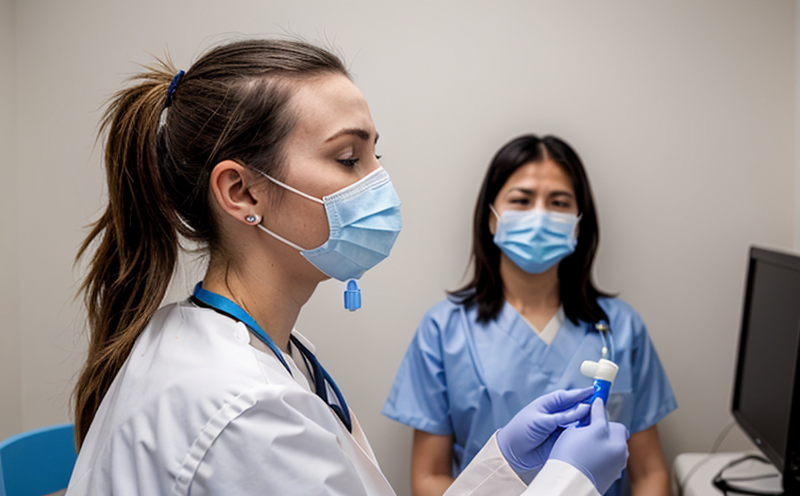Veterinary Vaccine Efficacy Testing for Respiratory Pathogens
Respiratory diseases in animals are a significant concern in veterinary medicine and animal husbandry. Ensuring the efficacy of vaccines against these pathogens is critical to maintaining animal health and welfare, as well as preventing the spread of disease within populations.
Vaccine efficacy testing for respiratory pathogens involves a series of rigorous laboratory protocols designed to evaluate whether a vaccine successfully induces protective immunity in hosts. This process typically includes challenge studies where vaccinated animals are exposed to the target pathogen under controlled conditions. The outcomes help determine if the vaccine can effectively prevent disease, reduce its severity, or shorten its duration.
The testing procedure is multifaceted and involves several stages:
- Preparation of Test Specimens: Samples from various hosts are collected under strict hygiene protocols to ensure they accurately represent the target population. These samples may include nasal swabs, pharyngeal washes, or blood serum.
- Vaccination Protocols: Vaccines are administered according to standard dosing schedules and routes of administration to ensure consistency across trials.
- Challenge Exposures: After a suitable incubation period post-vaccination, the animals are exposed to the respiratory pathogen. This step simulates real-world conditions where vaccinated individuals may encounter the pathogen.
- Evaluation of Immune Responses: Post-challenge monitoring assesses clinical signs and pathology to evaluate immune responses. This includes measuring antibody titers, cytokine levels, and other biomarkers indicative of protective immunity.
Accurate and reliable vaccine efficacy testing is vital for several reasons. It ensures that the vaccines meet regulatory standards, safeguard public health by preventing disease outbreaks in animal populations, and promote ethical practices in veterinary medicine.
Benefits
- Enhanced Animal Health: Ensuring vaccine efficacy helps minimize the incidence of respiratory diseases, thereby improving overall animal health and welfare.
- Prevention of Disease Spread: Effective vaccines can prevent the spread of respiratory pathogens within populations, reducing the risk of outbreaks.
- Regulatory Compliance: Meeting rigorous testing standards guarantees that products meet international regulatory requirements, enhancing market access for manufacturers.
- Ethical Practice: By ensuring vaccine efficacy, we uphold ethical standards in animal husbandry and veterinary medicine.
Customer Impact and Satisfaction
Our comprehensive testing services provide peace of mind to our customers by offering robust evidence of vaccine efficacy. This ensures that the vaccines they use are reliable, safe, and effective against targeted respiratory pathogens.
We work closely with our clients to tailor our protocols to their specific needs, ensuring that each test is as relevant and useful as possible for their unique applications. By delivering accurate results in a timely manner, we contribute significantly to the success of our customers' products and services.
International Acceptance and Recognition
Vaccine efficacy testing is governed by international standards such as ISO, ASTM, EN, and IEC. Our laboratory adheres strictly to these guidelines to ensure that our results are internationally recognized and accepted.
We use state-of-the-art equipment and methodologies recommended by these standards to conduct our tests. This ensures consistency with global best practices and enhances the reliability of our findings.





